The Reformational
What if Christian faith is less about having all the right answers and more about learning to live as human beings? What is God’s purpose for our lives is not to have it all together, but to lean into our finite, messy, lives? Join me as we explore the heart of the Christian life as we engage important questions about God, the bible, salvation, and what it means to follow Jesus.
Episodes
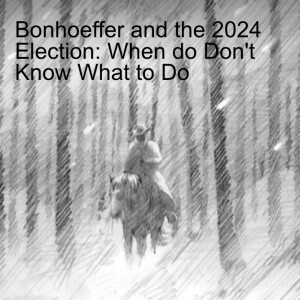
Sunday Nov 10, 2024
Sunday Nov 10, 2024
In II Chronicles 20, the kingdom of Judah is attacked by a great multitude from the nations around them. Verse 3 says that “Jehoshaphat was afraid; he set himself to seek the Lord…” In the prayer that follows, he reminds the Lord of the promise made to Abraham. Then, in verse 12, we read: “For we are powerless against this great multitude that is coming against us. We do not know what to do, but our eyes are on you.” “We do not know what to do…” What happens when everything you work and hope for comes crashing down? What happens when the path becomes blocked? Bonhoeffer explores these questions in a sermon on this text. This episode explores what his words have to say to us today.
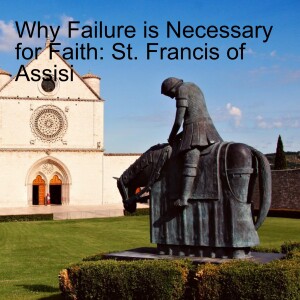
Monday Oct 21, 2024
Monday Oct 21, 2024
What does a thirteenth century wandering preacher, who today is most often thought of as a garden decoration, have to say to those who have abandoned religious faith? How does a medieval miracle worker, immersed in a religious world of angels, demons, and spectacular visions provide an example of religionless faith? This episode explores these questions and more.
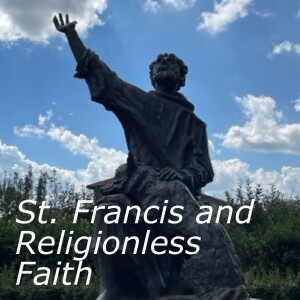
Saturday Sep 21, 2024
Saturday Sep 21, 2024
When I take students to Italy to walk in the footsteps of St. Francis, I have to confront their skepticism. St. Francis was part of a medieval world and social imaginary. Yet, most of my students, though Christian, experience the world differently. How does St. Francis fit with what Bonhoeffer calls a “world come of age”? What is the meaning of pilgrimage for young people shaped by the immanent frame? This episode explores these questions from the ancient Italian town of Gubbio.
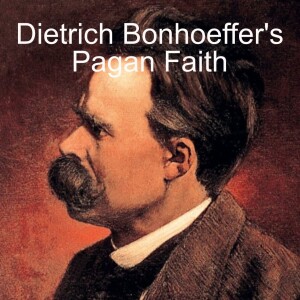
Friday Sep 06, 2024
Friday Sep 06, 2024
In his essay Aristocratic Christendom: On Bonhoeffer and Nietzsche, Frits de Lange writes this: "Bonhoeffer tries to develop a theology that integrates the heart of Nietzsche's critique of religion--a Christianity that might respond to the call of Zarathustra: 'I beseech you, my brothers, remain faithful to the earth, and do not believe those who speak to you of otherworldly hopes!' A dignified faith, which does not try to force its way through the backdoor of human weakness, but knocks properly at the front door and stays courteous, even when it might not be shown in." How does this connect with Bonhoeffer's desire to hold the biblical themes of blessing and cross together? That's what this episode will explore!
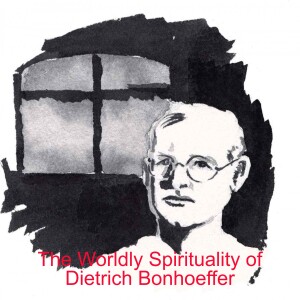
Tuesday Sep 03, 2024
Tuesday Sep 03, 2024
Bonhoeffer writes, "One only learns to have faith by living in the full this-worldliness of life." In this letter, Bonhoeffer describes a different version of Christian spirituality--to live as human beings. We're called to let go of our desire to make something of ourselves, to become saints, and learn to take responsibility for living in this life in the midst of it all. This is where God is found, and this is where God shapes us into the new humanity of Jesus Christ.
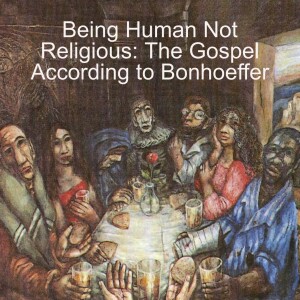
Friday Aug 30, 2024
Friday Aug 30, 2024
In his letter dated July 18, 1944, Bonhoeffer writes: "It is not a religious act that makes someone Christian, but rather sharing in God's suffering in the worldly life." To make this point, Bonhoeffer recounts all the times Jesus welcomes people, eats with them, even heals them, without any confession of sin, or declaration of their sinfulness. Instead, the gospel overcomes the false binaries created by abstract form of religion, freeing us to become fully human in Christ. This episode explores what this all means.
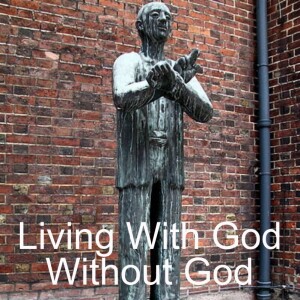
Tuesday Aug 27, 2024
Tuesday Aug 27, 2024
In a letter dated July 16, 1944, Bonhoeffer writes: "Before God, and with God, we live without God." What does it mean to live without God in a world come of age? This is the heart of Bonhoeffer's religionless faith—we must grow up and learn to live in a world come of age without the hypothesis of God.

Wednesday Aug 21, 2024
Wednesday Aug 21, 2024
This past weekend I attended a Metallica concert in Minneapolis. The experience has me thinking about how a heavy metal concert provides and example of Bonhoeffer's religionless Christianity. This episode explores the relationship between Bonhoeffer's thought and heavy metal music using excerpts from my book Christianity and Heavy Metal as Impure Sacred within the Secular West: Transgressing the Sacred.
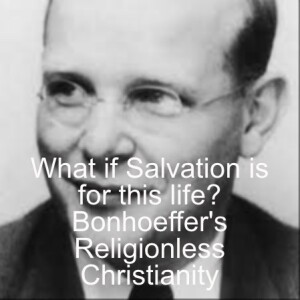
Sunday Aug 18, 2024
Sunday Aug 18, 2024
In a letter written to Eberhard Bethge, Dietrich Bonhoeffer writes, "The Christian hope of resurrection is different from the mythological in that it refers people to their life on earth in a wholly new way...Christians do not have an ultimate escape route out of their earthly tasks and difficulties into eternity." In other words, the gospel is not good news about life after we die, it is good news for out life in and for this world. How does this change what it means to live a Christian life?
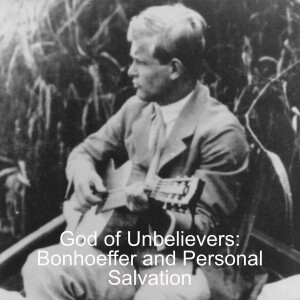
Saturday Aug 03, 2024
Saturday Aug 03, 2024
In one of his letters, Bonhoeffer writes: "Hasn't the individualistic question of saving our personal souls almost faded away for most of us?" Yet, for many Christians, the idea that Jesus died for my sins so I can go to heaven is central to Christianity. As Bonhoeffer thought about the future of Christian faith, he believed the point of Christianity is about the restoration of our humanity; it is about THIS world. "What is beyond this world is meant, in the gospel, to be there for this world." What does he mean? And what does religionless Christianity have to do with a Foo Fighters concert? Check out his episode.
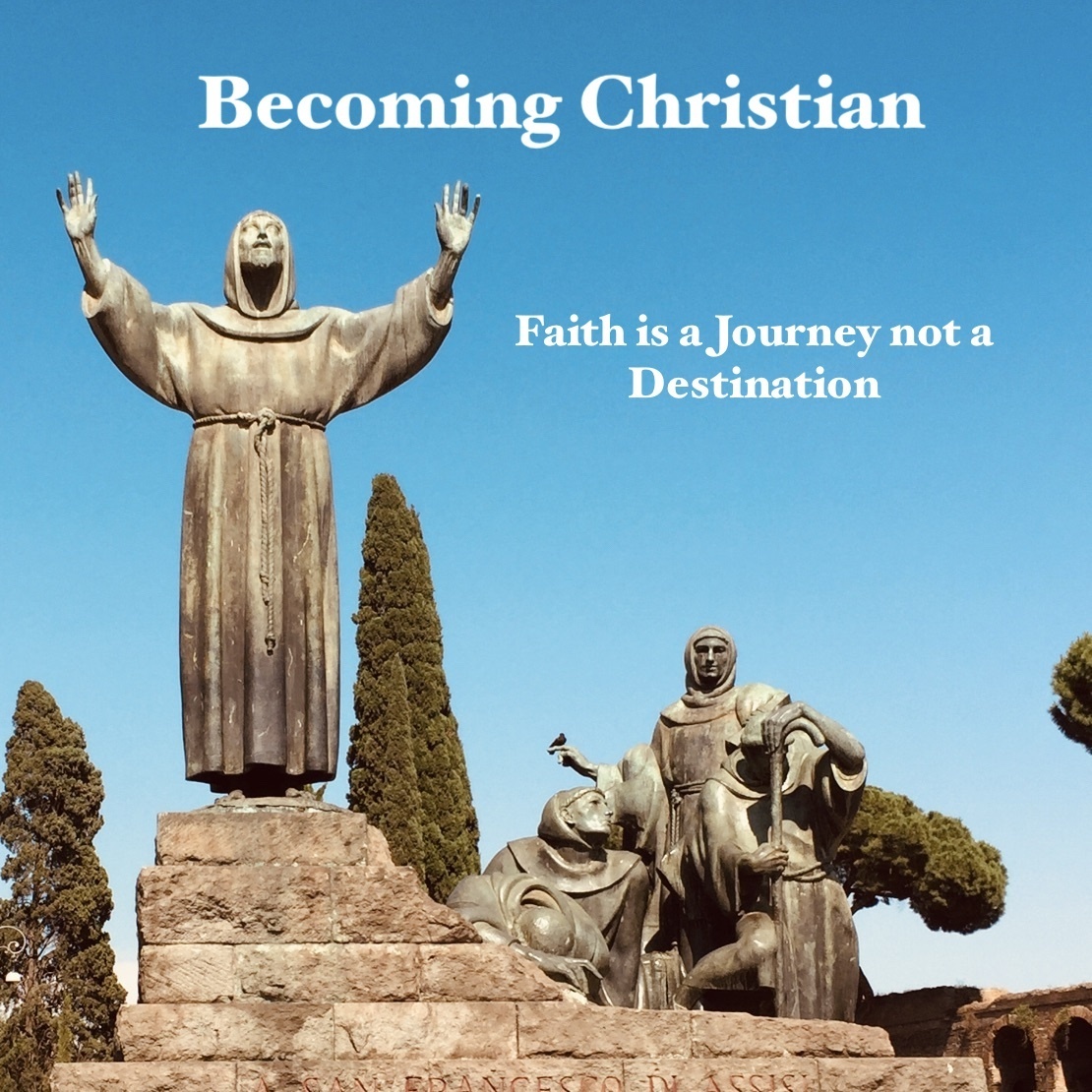
Becoming Christian
Soren Kierkegaard argues that faith is never something we get beyond--we're always in the process of becoming. We're always "on the way". This podcast is a place to explore what it means to have faith in the contemporary world. As more and more people move away from institutionalized religion, the response of some in Christian circles is to double down on doctrine and morality. I guess they think if they can get rid of doubt, and maintain some type of certainty, people might stick around. I'm not convinced that's what Christian faith has ever been about. Give these episodes a listen, comment, and hopefully the conversation can be helpful as we make our way through life.







